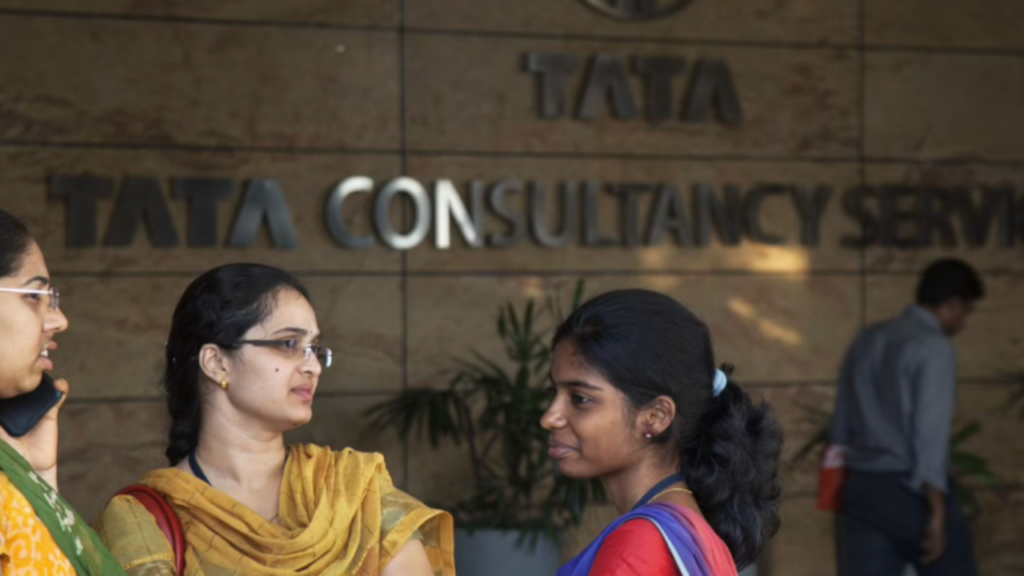K Krithivasan, the CEO and MD of Tata Consultancy Services (TCS), earned the lowest yearly salary of major IT businesses in the fiscal year 2023–2024, at Rs 25.36 crore.

According to TCS’s annual report, Krithivasan’s remuneration comprises a base pay, benefits, perquisites, allowances, and a commission of Rs 21 crore.
K Krithivasan Paid Lowest Yearly Salary – Rs. 25.36 Crores
Krithivasan owns about 11,232 shares in the company, although the employee stock purchase scheme (ESPS) is not included in the pay.
Salil Parekh, the CEO of Infosys, received the largest salary package of any CEO in the IT sector in the preceding fiscal year 2022–2023, totaling Rs 56 crore. Following Parekh was Srinivas Pallia, the recently appointed CEO of Wipro, who receives an annual compensation package of approximately Rs 50 crore.
HCLTech’s C Vijayakumar came in second place with earnings of Rs 28.4 crore for the fiscal year 2022–2023. Mohit Joshi of Tech Mahindra was paid Rs 6.5 crore in fixed compensation per year and an equivalent amount in variable pay per year in FY22–23.
On June 1, 2023, Rajesh Gopinathan was replaced as CEO by Krithivasan. Gopinathan made Rs 1.1 crore in his brief two-month tenure as CEO before quitting. Gopinathan’s compensation increased from Rs 25.75 crore to Rs 29.16 crore in FY23, a 13 percent annual increase.
COO NG Subramaniam Made 26.18 Crores
In FY24, outgoing COO NG Subramaniam made a total of Rs 26.18 crore, of which Rs 21 crore came from commission and the rest from salary and benefits. In FY24, Subramaniam received more money than Krithivasan, however the CEO only received a pay for ten months, whilst the COO received a salary for the entire year.
In order to help clients use artificial intelligence (AI) more successfully, TCS CEO Krithivasan emphasized the company’s focus on investigating cutting-edge applications of generative artificial intelligence (Gen AI).
TCS wants to assist clients in utilizing AI to enhance implicit knowledge, boost productivity via cooperative intelligence, and develop into a knowledge-driven superstructure. Krithivasan highlighted TCS’s large talent pool with training in Gen AI, AI/ML, and partnerships, presenting the business as a collaborator with clients on their technology adoption journeys.
Although adoption of Gen AI is still in its early phases, many clients have started experimenting with its numerous use cases, anticipating it to revolutionize every industry. Customers reprioritized projects in the business environment in FY24, favoring those that were considered business-critical, with an emphasis on cost efficiency and cloud transition.
Vendor consolidation, cloud migration, and efforts to improve employee and customer experiences were the main drivers of demand. Customers see cloud adoption as a growth and transformation strategy for their businesses, with hybrid and multi-cloud systems becoming commonplace and acting as innovation accelerators.











